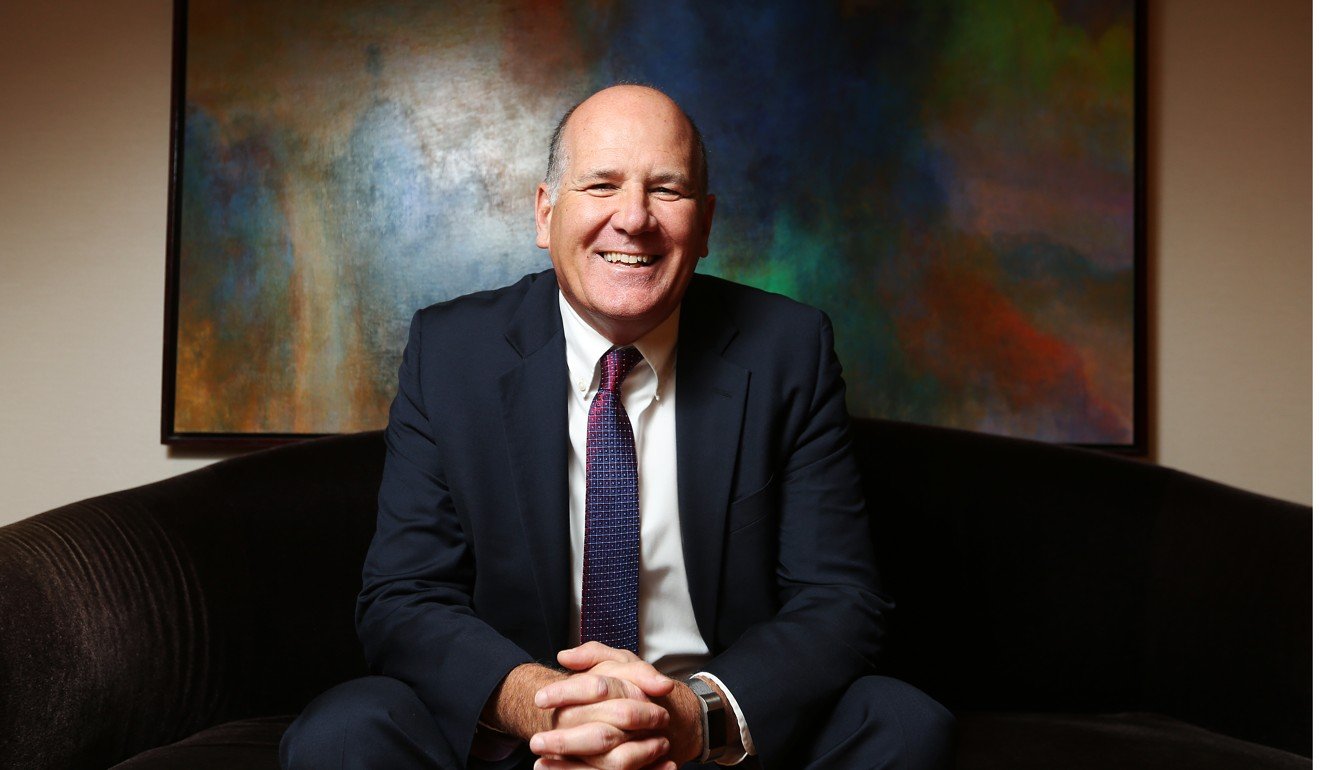
Global watchdogs unlikely to ban digital currencies – but expect a raft of new regulations on them, says global expert
Japan already issues licensing on bitcoin exchanges while Europe is also planning for more regulation, says Thomson Reuters head

Global regulators are unlikely to ban digital currencies altogether – but they will bring in tighter scrutiny on the buying and selling of bitcoin and its peers to ensure they comply with anti-money laundering and client identification processes, according to one of the world’s leading experts on currency regulation.
Phil Cotter, managing director of risk and supply chain at Thomson Reuters, said in an exclusive interview in Hong Kong that it was highly unlikely digital currencies would remain off the radar of the regulators for much longer.
“They will not be banned, but they will need to follow more rules and regulations,” he said.
He said digital currencies and other formats of digital payments are sure to up their game when it comes to innovation, bringing in greater consumer choice on how to make payments.
But without the necessary regulatory channels to counter those new risks, he added, some people may use the digital currencies to conduct financial crime or other money laundering activities.

Last month, the People’s Bank of China (PBOC), the country’s central bank, moved swiftly to ban initial coin offerings (ICOs), or fundraisings using the issue of digital currencies which are still outside the regulatory framework.
Up to 90 per cent of the ICOs launched on the mainland were found to have been fraudulent, PBOC said. South Korea also imposed a similar ban, while Macau blocked banking and payment institutions from taking part in or providing services to offer ICOs.
Cotter does not believe regulators will go as far as putting a stop on digital currencies as that would discourage financial innovation, but more regulation is now being demanded by countries around the world.
Japan has already brought in licensing requirements for bitcoin exchanges and other digital currencies, while in Europe tougher controls are already being considered.
“The real challenge will be on how to enforce any new rules,” he said, “but there will have to be proper regulation in place for these companies to establish trust with markets.”
Hong Kong‘s Securities and Futures Commission issued a statement last month saying some ICOs have been treated as buying shares in a company, and as such were covered by its securities regulations.
The real challenge will be on how to enforce any new rules...but there will have to be proper regulation in place for these companies to establish trust with markets
Hong Kong Monetary Authority chief executive Norman Chan Tak-lam, however, warned banks and financial firms to beware of whether the currencies do indeed comply with anti-money-laundering rules.
Cotter said the other major regulatory challenge worldwide is customer identification, related to digital currencies, stock transactions and other investments.
More regulators are now demanding full disclosure of all transactions, which might run contrary to customer privacy.
The SFC said on Tuesday that investors are expected to have new regulations by the middle of next year and that investors who trade mainland shares via the Stock Connect schemes would need to disclose their identity to the SFC which will share the information with the China Securities Regulatory Commission.
At present, Hong Kong only requires stock brokers’ names to appear on those trades which was considered insufficient in terms of transparency, as the mainland requires all investors to have their identification known to the regulator.
In Europe, he said there has also been a lot of debate on how to achieve a balance between customer privacy and transparent.
Cotter said Thomson Reuters has received a lot of customer demand on finding a solution to the identity issue of cryptocurrencies, and on how to address a number of other regulatory requirements, including those under the revised Markets in Financial Instruments Directive which requires global asset management firms – including those based in the Asia-Pacific but with European exposure – to unbundle research reports and execution fees from January 2018.
Cotter said while many firms believe this is only a European regulation, it will be also have an impact on Asian firms too, which have operations in Europe.